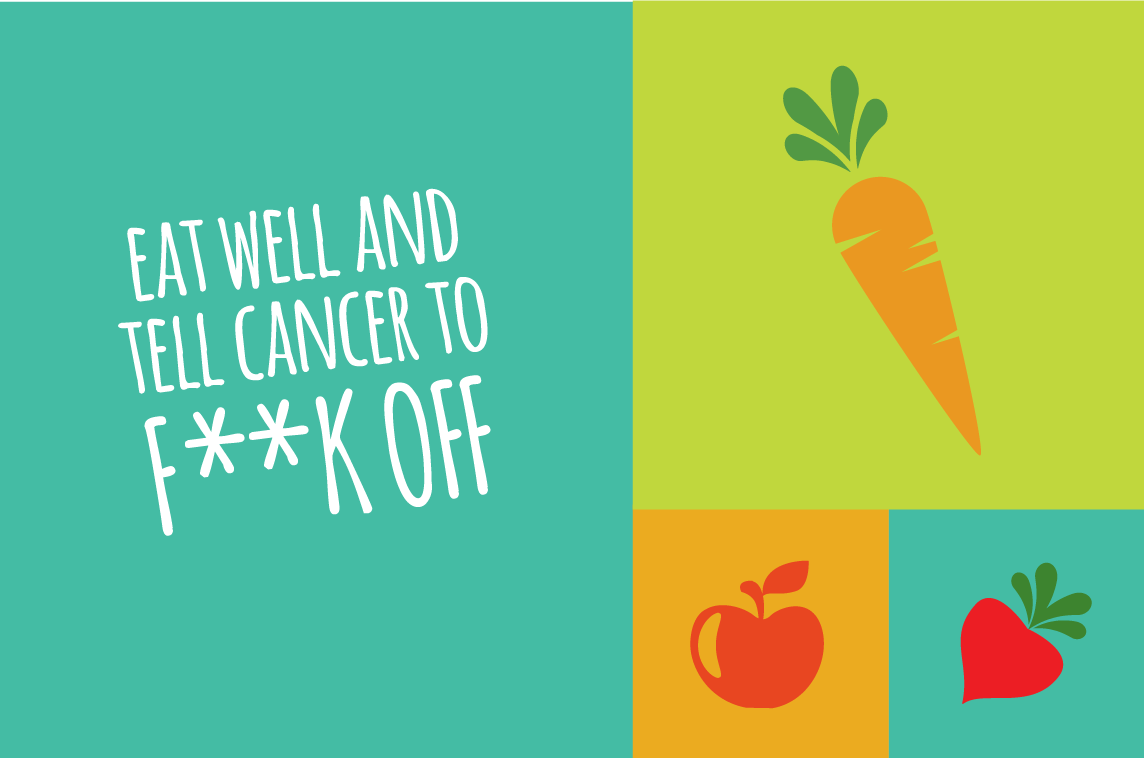
Feel like seeing a ridiculously depressing statistic today? How about this one:
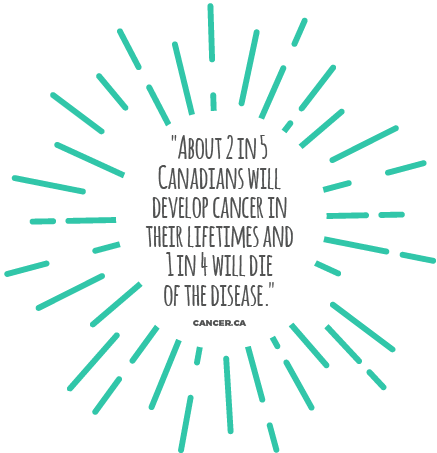
That’s 40% of Canadians. 40% will get cancer. How is that even possible? That is staggeringly high, and apparently it’s similar in the United States and the UK. So what can we do about it? Sadly, there is neither any single known cause for cancer nor a cure. Fortunately, there are a number of well-researched factors that can contribute to a higher risk of cancer; many of which are diet related. This is actually good news because you control what you put in your mouth! It might take some serious self control not to binge on french fries and chicken wings while marathoning Parks & Rec on Netflix (great show by the way), but if you’re serious about reducing any risk you might have for cancer, educating yourself is the first step. I’ve looked into three cancer research institutions on their tips for preventing cancer and I’ve summarized their recommendations here:
– The Cancer Society of America –
The Cancer Society of America’s website has a small but helpful list of cancer prevention tips which I’ve summed up here:
 Eating vegetables, legumes, and fruits instead of junk foods like cakes or ice cream
Eating vegetables, legumes, and fruits instead of junk foods like cakes or ice cream- Reducing consumption of sugary drinks like sodas and sports drinks
- Avoid all red and processed meats, especially sausages, bacon, hot dogs and lunch meats
- Prepare meat by baking, broiling or poaching rather than charbroiling or frying
- Add fruits and veggies to every meal/snack and vary them from day to day
- Drink fresh fruit or veggie juices; avoid dressings, creams, and dips with fruits and veggies
- Avoid refined breads, pasta, and cereals. Opt for whole grains; eat oats and barley
- Replace white rice with brown
- Avoid refined carbohydrate foods like pastries, sugary cereals, candy, etc.
- Avoid alcohol or limit alcohol intake (max 2 drinks/day for men, 1 drink/day for women)
– Canadian Cancer Society –
The Canadian Cancer Society has a variety of information on cancer prevention for diet and lifestyle. Their main lifestyle recommendations are to avoid being overweight and get regular physical activity. Their nutrition information is a bit lacking however. Their main points are to eat “lots of fruits & veggies, lots of fiber, and little fat and sugar”. Unfortunately, the words “lots” and “little” are very subjective and don’t really mean much to someone needing proper direction. They do emphasize eating plenty of plant foods, whole grains and beans; and mention that red meat and processed meats increase your risk of cancer. They recommend following Canada’s Food Guide (pdf link here) which again, provides a very general overview of what to eat, but does not mention food combining or give many healthy options for each food group. For instance, bagels, pasta, and cereal are listed under grains but oats, barley, or any ancient grains are missing, and under oils & fats it recommends mayonnaise or margarine each day; which I would not recommend following, since margarine is very high in trans-fats.
– The American Institute for Cancer Research –
The most concise cancer prevention nutrition guidelines I’ve found are from the 1997 American Institute for Cancer Research, published in Elson M. Haas’s book Staying Healthy with Nutrition. I’ve summarized the list here:
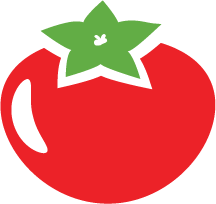 Eat primarily plant-based foods: Fruits, veggies, legumes, and minimally processed starches. Eat 5+ servings of fruits & veggies per day, 7+ servings of other minimally processed starchy or protein-rich plant foods (grains, legumes, roots, tubers, plantains)
Eat primarily plant-based foods: Fruits, veggies, legumes, and minimally processed starches. Eat 5+ servings of fruits & veggies per day, 7+ servings of other minimally processed starchy or protein-rich plant foods (grains, legumes, roots, tubers, plantains)- Maintain a healthy body weight: BMI of 21-23 (Keep in mind BMI is only accurate if you don’t have a ton of muscle on you)
- Be physically active (a daily walk + 60 min cardio/week)
- Do not consume alcohol; for those who do drink, limit to 2 drinks/day for men & 1 drink/day for women
- Consume fish, poultry or meat from non domesticated animals in place of red meat. If red meat is eaten, it should be limited to less than 3 ounces/day
- Aim for cooking meat and fish at relatively low temperatures to avoid charred food
- Limit fatty foods, especially those of animal origin. Consume minimal amounts of appropriate vegetable oils
- Limit salty foods/salt to less than 0.25 ounces/6 grams per day. Use herbs & spices to season food when possible
- Keep perishable food away from potential contamination or unfavorable temperatures; perishable food should be frozen or chilled when storing
- Be wary of food additives (like aspartame, sodium benzoate, trisodium phosphate); and chemical contaminants in the food supply (like pesticides, hormones, etc.)
- Do not smoke or chew tobacco
To summarize all of this information, how about a handy graphic? Here you go:

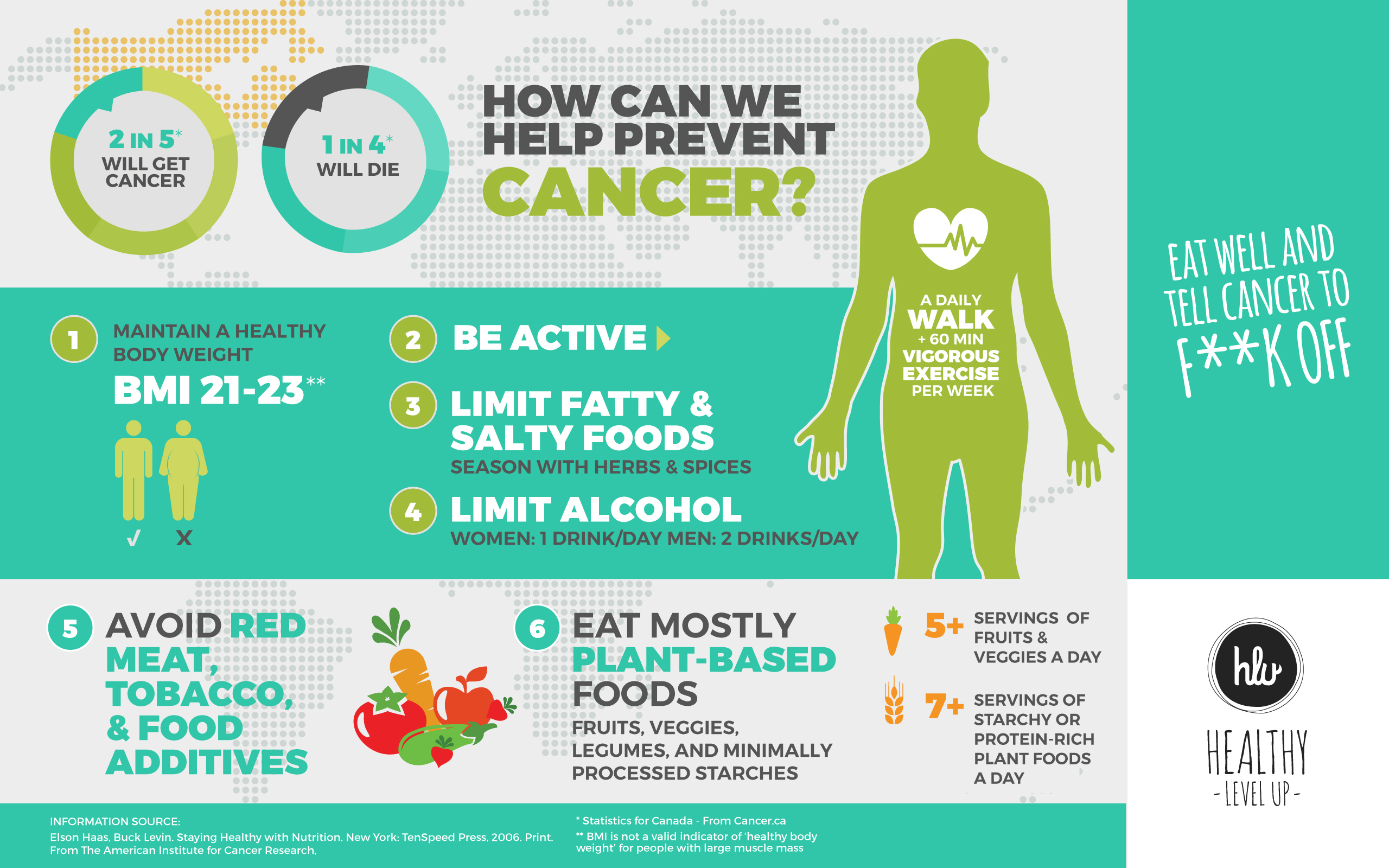
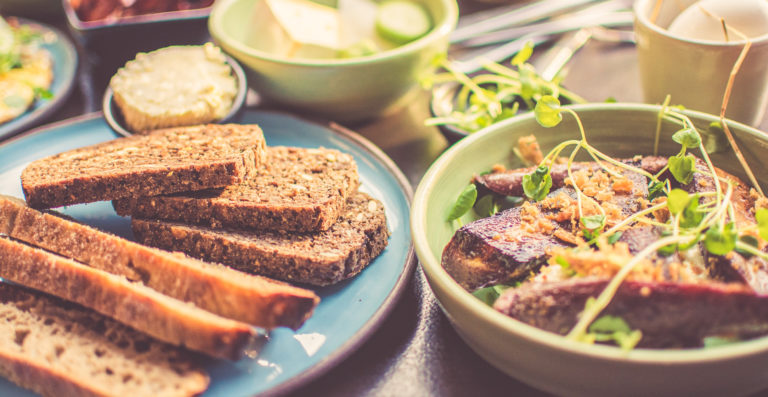



Leave a Comment